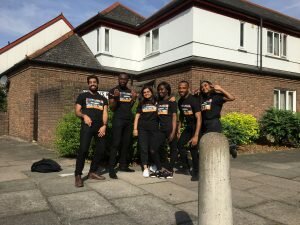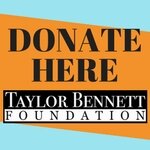My dad died two years ago at the age of 65. He could be a difficult man and I often see some of his not so pleasant traits in me – pig headedness, competitiveness, and a need to be in control. But he could also be kind, generous, and mischievous.
He was wired that way for good reason. As a toddler he had polio (anti-vaxxers, stay away because I will not entertain your rubbish – a vaccine would have improved his life – and lengthened it – immeasurably). As a result, his right leg didn’t work, he wore a calliper and in the final years of his life was confined to a wheelchair permanently. He knew that the odds were stacked against him and when that happens being pig headed is an asset.
In the late 1950s children with physical disabilities were often sent to school with those who had a range of learning disabilities. As a result, all his school taught him was how to read and write, and how to use a knife and fork. He left without a single qualification, although he did go on to learn how to repair TVs and radios which he never really put to use.
When he met my mum, a student nurse, he worked in a metalwork factory where there was no such thing as health and safety and he often came home with bits of brass in his eyes. He earned a pittance and the boss got so fed up of him asking for a pay rise every month he gave him a shilling and told him not to darken his door and ask again for another year. My mum persuaded him to look for an office job in the mid 70’s (I was born in ’74) and he went to some recruitment agencies which eventually found him a desk clerk role at a company which dealt with imports and exports. He stayed at that firm for the rest of his working life. It was taken over twice, latterly by ANZ bank, and he finished his career there working in middle management in the IT department – having taught himself a bit about computers on our Vic 20 at home.
He also had several jobs outside of his regular role. He did mobile discos at weekends (there are photos of a baby me laid against speakers at parties!), he drove a mini cab at night, he did regular boot sales with dodgy stock that he’d procured from who knows where, and he did trips to Calais to buy booze and tobacco and then sold them on.
So he was quite entrepreneurial and not afraid of a risk, which I also get from him.
When Gillespies employed him they did so because they had a quota to fill. They had a policy (and I’m not sure if it was self imposed or a legal requirement, but I suspect it was the former) that they had to have a certain amount of disabled employees. Dad was bright, enthusiastic, keen to learn and was always the first in and the last out of the office. He was a good hire. They also made some concessions – he had a parking space allocated to him so he could drive to work as public transport was so unfriendly for the disabled in the 70s and 80s (and is not that much improved now!)
He openly acknowledged that getting that job was down to the quota. However, keeping it for nearly 40 years, being regularly promoted, and avoiding several rounds of redundancies was down to him.
Without that quota it is likely that he would’ve stayed working in a metalwork factory, or similar, for the rest of his life. He’d probably still have done a bit of wheeling and dealing on the side, but he would’ve had a much harder life. He may not have been able to get a mortgage and he almost certainly wouldn’t have been able to send me to university – I remain the first and only person in my family to have done that. The impact of that quota echos down the generations as without it I wouldn’t have had the education I have had, which led to work opportunities which would’ve been beyond my reach and, I suspect, my children and their children will continue to reap the benefit of dad’s change of employment circumstances.
 Perhaps it was inevitable then that I ended up working for an organisation which is rooted not in quotas, but in positive action. Taylor Bennett Foundation aims to open access to the PR industry from those from black and minority ethnic backgrounds not because they aren’t perfectly capable of performing roles in communications – and excelling, but because sometimes it takes someone to open the door and let you in.
Perhaps it was inevitable then that I ended up working for an organisation which is rooted not in quotas, but in positive action. Taylor Bennett Foundation aims to open access to the PR industry from those from black and minority ethnic backgrounds not because they aren’t perfectly capable of performing roles in communications – and excelling, but because sometimes it takes someone to open the door and let you in.
We conduct yearly impact measurement with the Foundation’s alumni and ask them where they’re working, what their title is, how much they earn, and how their experience with the Foundation has impacted on their lives. Some of those alumni have gone on to have children of their own and we will never really know what impact we’ve had on the lives of their next generation – but my own experience tells me that just opening that door can make a huge difference.




